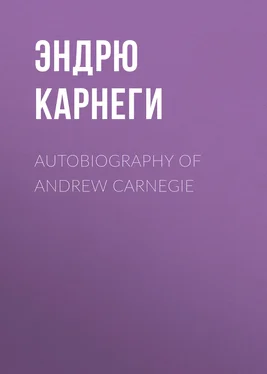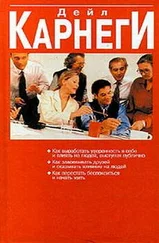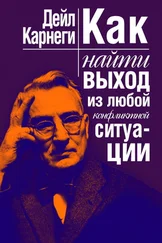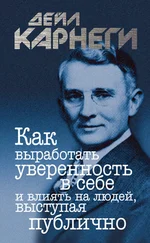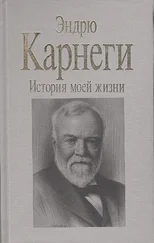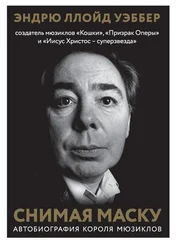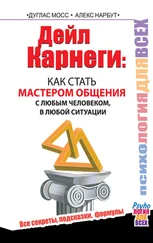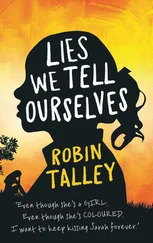Эндрю Карнеги - Autobiography of Andrew Carnegie
Здесь есть возможность читать онлайн «Эндрю Карнеги - Autobiography of Andrew Carnegie» — ознакомительный отрывок электронной книги совершенно бесплатно, а после прочтения отрывка купить полную версию. В некоторых случаях можно слушать аудио, скачать через торрент в формате fb2 и присутствует краткое содержание. Жанр: Биографии и Мемуары, foreign_antique, на английском языке. Описание произведения, (предисловие) а так же отзывы посетителей доступны на портале библиотеки ЛибКат.
- Название:Autobiography of Andrew Carnegie
- Автор:
- Жанр:
- Год:неизвестен
- ISBN:нет данных
- Рейтинг книги:3 / 5. Голосов: 1
-
Избранное:Добавить в избранное
- Отзывы:
-
Ваша оценка:
- 60
- 1
- 2
- 3
- 4
- 5
Autobiography of Andrew Carnegie: краткое содержание, описание и аннотация
Предлагаем к чтению аннотацию, описание, краткое содержание или предисловие (зависит от того, что написал сам автор книги «Autobiography of Andrew Carnegie»). Если вы не нашли необходимую информацию о книге — напишите в комментариях, мы постараемся отыскать её.
Autobiography of Andrew Carnegie — читать онлайн ознакомительный отрывок
Ниже представлен текст книги, разбитый по страницам. Система сохранения места последней прочитанной страницы, позволяет с удобством читать онлайн бесплатно книгу «Autobiography of Andrew Carnegie», без необходимости каждый раз заново искать на чём Вы остановились. Поставьте закладку, и сможете в любой момент перейти на страницу, на которой закончили чтение.
Интервал:
Закладка:
"Not at all, Naig; if Scotland were rolled out flat as England, Scotland would be the larger, but would you have the Highlands rolled down?"
Oh, never! There was balm in Gilead for the wounded young patriot. Later the greater population of England was forced upon me, and again to the uncle I went.
"Yes, Naig, seven to one, but there were more than that odds against us at Bannockburn." And again there was joy in my heart—joy that there were more English men there since the glory was the greater.
This is something of a commentary upon the truth that war breeds war, that every battle sows the seeds of future battles, and that thus nations become traditional enemies. The experience of American boys is that of the Scotch. They grow up to read of Washington and Valley Forge, of Hessians hired to kill Americans, and they come to hate the very name of Englishman. Such was my experience with my American nephews. Scotland was all right, but England that had fought Scotland was the wicked partner. Not till they became men was the prejudice eradicated, and even yet some of it may linger.
Uncle Lauder has told me since that he often brought people into the room assuring them that he could make "Dod" (George Lauder) and me weep, laugh, or close our little fists ready to fight—in short, play upon all our moods through the influence of poetry and song. The betrayal of Wallace was his trump card which never failed to cause our little hearts to sob, a complete breakdown being the invariable result. Often as he told the story it never lost its hold. No doubt it received from time to time new embellishments. My uncle's stories never wanted "the hat and the stick" which Scott gave his. How wonderful is the influence of a hero upon children!
I spent many hours and evenings in the High Street with my uncle and "Dod," and thus began a lifelong brotherly alliance between the latter and myself. "Dod" and "Naig" we always were in the family. I could not say "George" in infancy and he could not get more than "Naig" out of Carnegie, and it has always been "Dod" and "Naig" with us. No other names would mean anything.
There were two roads by which to return from my uncle's house in the High Street to my home in Moodie Street at the foot of the town, one along the eerie churchyard of the Abbey among the dead, where there was no light; and the other along the lighted streets by way of the May Gate. When it became necessary for me to go home, my uncle, with a wicked pleasure, would ask which way I was going. Thinking what Wallace would do, I always replied I was going by the Abbey. I have the satisfaction of believing that never, not even upon one occasion, did I yield to the temptation to take the other turn and follow the lamps at the junction of the May Gate. I often passed along that churchyard and through the dark arch of the Abbey with my heart in my mouth. Trying to whistle and keep up my courage, I would plod through the darkness, falling back in all emergencies upon the thought of what Wallace would have done if he had met with any foe, natural or supernatural.
King Robert the Bruce never got justice from my cousin or myself in childhood. It was enough for us that he was a king while Wallace was the man of the people. Sir John Graham was our second. The intensity of a Scottish boy's patriotism, reared as I was, constitutes a real force in his life to the very end. If the source of my stock of that prime article—courage—were studied, I am sure the final analysis would find it founded upon Wallace, the hero of Scotland. It is a tower of strength for a boy to have a hero.
It gave me a pang to find when I reached America that there was any other country which pretended to have anything to be proud of. What was a country without Wallace, Bruce, and Burns? I find in the untraveled Scotsman of to-day something still of this feeling. It remains for maturer years and wider knowledge to tell us that every nation has its heroes, its romance, its traditions, and its achievements; and while the true Scotsman will not find reason in after years to lower the estimate he has formed of his own country and of its position even among the larger nations of the earth, he will find ample reason to raise his opinion of other nations because they all have much to be proud of—quite enough to stimulate their sons so to act their parts as not to disgrace the land that gave them birth.
It was years before I could feel that the new land could be anything but a temporary abode. My heart was in Scotland. I resembled Principal Peterson's little boy who, when in Canada, in reply to a question, said he liked Canada "very well for a visit, but he could never live so far away from the remains of Bruce and Wallace."
CHAPTER II
DUNFERMLINE AND AMERICA
MYgood Uncle Lauder justly set great value upon recitation in education, and many were the pennies which Dod and I received for this. In our little frocks or shirts, our sleeves rolled up, paper helmets and blackened faces, with laths for swords, my cousin and myself were kept constantly reciting Norval and Glenalvon, Roderick Dhu and James Fitz-James to our schoolmates and often to the older people.
I remember distinctly that in the celebrated dialogue between Norval and Glenalvon we had some qualms about repeating the phrase,—"and false as hell ." At first we made a slight cough over the objectionable word which always created amusement among the spectators. It was a great day for us when my uncle persuaded us that we could say "hell" without swearing. I am afraid we practiced it very often. I always played the part of Glenalvon and made a great mouthful of the word. It had for me the wonderful fascination attributed to forbidden fruit. I can well understand the story of Marjory Fleming, who being cross one morning when Walter Scott called and asked how she was, answered:
"I am very cross this morning, Mr. Scott. I just want to say 'damn' [with a swing], but I winna."
Thereafter the expression of the one fearful word was a great point. Ministers could say "damnation" in the pulpit without sin, and so we, too, had full range on "hell" in recitation. Another passage made a deep impression. In the fight between Norval and Glenalvon, Norval says, "When we contend again our strife is mortal." Using these words in an article written for the "North American Review" in 1897, my uncle came across them and immediately sat down and wrote me from Dunfermline that he knew where I had found the words. He was the only man living who did.
My power to memorize must have been greatly strengthened by the mode of teaching adopted by my uncle. I cannot name a more important means of benefiting young people than encouraging them to commit favorite pieces to memory and recite them often. Anything which pleased me I could learn with a rapidity which surprised partial friends. I could memorize anything whether it pleased me or not, but if it did not impress me strongly it passed away in a few hours.
One of the trials of my boy's life at school in Dunfermline was committing to memory two double verses of the Psalms which I had to recite daily. My plan was not to look at the psalm until I had started for school. It was not more than five or six minutes' slow walk, but I could readily master the task in that time, and, as the psalm was the first lesson, I was prepared and passed through the ordeal successfully. Had I been asked to repeat the psalm thirty minutes afterwards the attempt would, I fear, have ended in disastrous failure.
The first penny I ever earned or ever received from any person beyond the family circle was one from my school-teacher, Mr. Martin, for repeating before the school Burns's poem, "Man was made to Mourn." In writing this I am reminded that in later years, dining with Mr. John Morley in London, the conversation turned upon the life of Wordsworth, and Mr. Morley said he had been searching his Burns for the poem to "Old Age," so much extolled by him, which he had not been able to find under that title. I had the pleasure of repeating part of it to him. He promptly handed me a second penny. Ah, great as Morley is, he wasn't my school-teacher, Mr. Martin—the first "great" man I ever knew. Truly great was he to me. But a hero surely is "Honest John" Morley.
Читать дальшеИнтервал:
Закладка:
Похожие книги на «Autobiography of Andrew Carnegie»
Представляем Вашему вниманию похожие книги на «Autobiography of Andrew Carnegie» списком для выбора. Мы отобрали схожую по названию и смыслу литературу в надежде предоставить читателям больше вариантов отыскать новые, интересные, ещё непрочитанные произведения.
Обсуждение, отзывы о книге «Autobiography of Andrew Carnegie» и просто собственные мнения читателей. Оставьте ваши комментарии, напишите, что Вы думаете о произведении, его смысле или главных героях. Укажите что конкретно понравилось, а что нет, и почему Вы так считаете.
